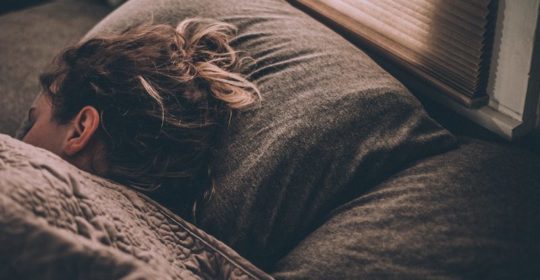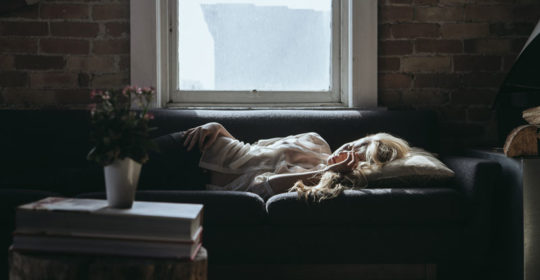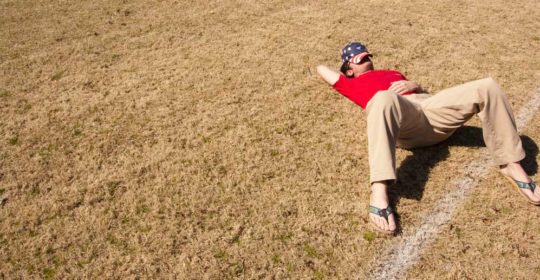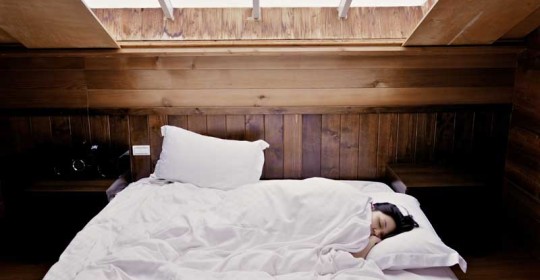
Poor sleep linked to PTSD after heart attack
In a recent post by the National Sleep Foundation, data from Columbia University Medical Center shows that “symptoms of PTSD after a heart attack are relatively common.”
Read more →
In a recent post by the National Sleep Foundation, data from Columbia University Medical Center shows that “symptoms of PTSD after a heart attack are relatively common.”
Read more →
Ostructive sleep apnea and low nighttime oxygen – which results in oxidative stress – may trigger progression of pediatric non-alcoholic fatty liver disease to non-alcoholic steatohepatitis.
Read more →
A study published in Neurology recently found concussions appear to cause long lasting sleep problems lasting for years. NPR’s recent post states, “A study of 31 patients with this sort of brain injury found that 18 months afterward, they were still getting, on average, an hour more sleep each night than similar healthy people were getting.
Read more →
The American Academy of Sleep Medicine recently posted a new study that “suggests that the quality of your sleep may be related to the type of food that you eat.”
Twenty-six adults of normal weight and an average age of 35 participated.
Read more →
Sleep disorders can be effectively treated once they have been accurately diagnosed. Accurate diagnosis is the key to treatment success since different problems require different treatment approaches. These may include medications, a change in daily habits or working hours, weight loss, the use of a special breathing machine at night (nasal CPAP), or even one of several types of surgery. Patients also have their specific problem thoroughly explained to them and are informed about all treatment choices available.

Excessive daytime sleepiness is often associated with two common sleep disorders: narcolepsy and sleep apnea.
Narcolepsy symptoms include falling asleep at times when one should normally be able to stay awake; muscular weakness or sleepiness when angry, surprised or amused; and feeling sleepy most of the day.
People who snore loudly may have pauses in their breathing, ending with a loud snort or gasp, a condition called sleep apnea. While these people may not be aware of the problem, a spouse or family member usually is. A potentially serious condition, sleep apnea may lead to various medical problems including sleepiness, fatigue, high blood pressure, difficulties with memory and other cognitive processes, and changes in personality.

Some people have problems falling asleep at night, waking up during the night or earlier than they would like, or feel that their sleep during the night has not been refreshing or restorative. Many different factors can lead to such complaints including leg movements during the night, breathing problems, stress, anxiety or depression and even the effects of alcohol, tranquilizers or sleeping pills. Medical disorders such as arthritis or fibromyalgia (a syndrome of muscle pain, painful trigger points and weakness) may also cause disturbed sleep and complaints of daytime fatigue.

When regular patterns of sleeping and waking are disrupted, many people find it difficult or impossible to resume a sleep/wake schedule that fits their needs. Such disruption can be caused by shift work or any other significant changes in a daily schedule. Some complaints of insomnia or daytime sleepiness may be due to unrecognized changes in sleep/wake rhythm.

Sleepwalking, sleep-talking, bed-wetting, nightmares, night terrors, teeth grinding and abnormal movements are all disturbances that may occur during sleep. Such behavior is seen most frequently in children, but also may persist into or first occur in adulthood. Elderly individuals who are confused or have complaints of insomnia may also have a form of abnormal nighttime behavior. These problems not only disturb the affected individual, but may also be very disruptive to others.

After you’ve made an appointment with the center, you should have your personal physician forward basic information about your medical history as well as any information about your sleep problem. Having this information available may save you time and expense. You may download our forms by clicking the download button on the orange homepage square to the right. If the forms can’t be filled out in advance, you will be asked to arrive one hour before your appointment. To complete the full diagnostic evaluation, you may need to come to the center more than once. On the first visit, you will be evaluated by a member of the professional staff. We may then recommend that you have recordings made of your sleep. These recordings, called polysomnograms, are made at the Center which has six private rooms for sleep studies. Each room is very quiet and comfortable, and has sophisticated equipment for monitoring your sleep patterns, breathing, heart activity and body movement throughout the night. Following the tests, all treatment decisions and recommendations are thoroughly discussed with you within the next few days.

The initial consultation fee depends on the complexities of your case and the time needed to review your history and medical records. There are additional costs if subsequent visits are required. Laboratory testing, such as an overnight sleep study, is an additional and major cost. All costs vary with the test or tests performed. Before any testing, you should review with our business office the total cost involved. Insurance companies have different reimbursement policies. Our experience is they generally reimburse for needed sleep studies. In addition to many private insurances, we are participating physicians in Medicare which pays 80% of allowable charges and the remainder by your supplemental policy. You are responsible for any remaining unpaid portion.
With referrals from Mayo, Cleveland Clinic, Shands, and University of Miami, our staff is experienced and professional, providing every patient with personalized, high quality care.
by phone: 1-239-254-1233
by e-mail: [email protected]
A nationally accredited center since 2004. Celebrating 35 years of excellence in patient care.
Monica O. Woodward, MD, PASleep Disorders Center of SW Florida
